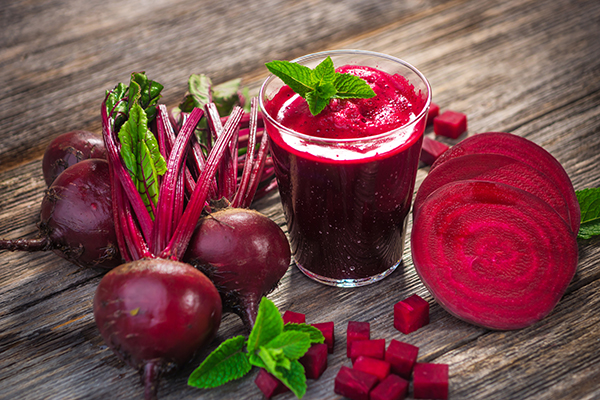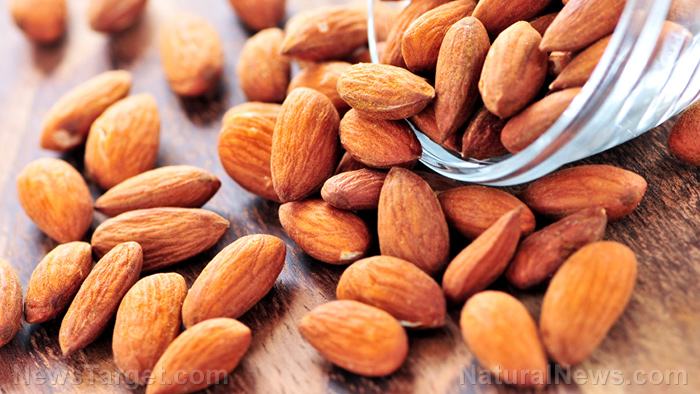 Parler
Parler Gab
Gab
- A study in JCI Insight reveals that ginger may help calm overactive immune responses in autoimmune diseases like lupus and rheumatoid arthritis by inhibiting neutrophil hyperactivity (NETosis), reducing inflammation.
- Ginger increases levels of the calming chemical cAMP in neutrophils, preventing their destructive overactivation. Tests on humans and mice showed promising results, though the study was small (only nine participants).
- Environmental factors and modern diets contribute to increasing autoimmune disorders. Current treatments often involve risky immunosuppressants, making ginger—a natural, historically safe remedy—an appealing alternative.
- Experts warn against self-supplementing with ginger due to potential side effects (e.g., blood thinning, worsened symptoms in some conditions). Consulting a doctor before use is critical.
- Incorporating ginger into meals (fresh, dried or pickled) is a safer approach. Pairing it with other anti-inflammatory foods (like turmeric) and avoiding processed foods can further support immune health.
The science behind ginger's anti-inflammatory punch
The study, led by researchers at the University of Colorado and the University of Michigan, zeroed in on neutrophils—white blood cells that act as the immune system's first responders. While neutrophils normally defend against infections, their overactivation triggers a destructive process called NETosis (neutrophil extracellular trap formation). Think of it as a biological overreaction: dying neutrophils release inflammatory webs that damage healthy tissue, worsening autoimmune flare-ups. (Related: Science-backed health benefits of ancient remedy GINGER.) But here's where ginger steps in. When healthy human volunteers took a daily 20-milligram ginger supplement for a week, their neutrophils produced higher levels of a calming chemical called cAMP (cyclic adenosine monophosphate), effectively putting the brakes on NETosis. In mice with lupus and antiphospholipid syndrome, ginger suppressed neutrophil hyperactivity, reducing inflammation.Why this matters now
Autoimmune diseases are on the rise, with diagnoses skyrocketing in recent decades. Some experts point to environmental toxins, processed diets and even modern hygiene practices as culprits. Yet mainstream medicine often relies on heavy-hitting immunosuppressants—drugs that come with side effects ranging from infections to cancer risks. Ginger, by contrast, has been used safely for millennia in traditional medicine. Its active compound, 6-gingerol, is a potent antioxidant. But until now, the precise mechanism behind its anti-inflammatory effects remained murky. This study changes that, offering concrete evidence that ginger doesn't just soothe nausea—it directly tames the immune system's rogue soldiers.Caution before diving into supplements
Before readers rush to bulk-order ginger capsules, experts urge caution. The study was small—only nine human participants—and while the results are promising, they're preliminary. Dr. Lawrence Taw of UCLA warns that ginger isn't a one-size-fits-all solution. For some conditions, like inflammatory bowel disease or psoriasis, it might even exacerbate symptoms. Another red flag: Ginger can thin blood, posing risks for those on anticoagulants like warfarin. "Natural doesn't always mean harmless," Taw emphasizes. Patients should consult doctors before adding supplements to their regimen.The safer route
For those intrigued but wary of pills, incorporating ginger into meals is a low-risk alternative. Nutritionist Samantha Heller notes that fresh, dried or pickled ginger can add flavor while potentially delivering anti-inflammatory benefits. Turmeric, another spice with proven immune-modulating effects, pairs well with ginger in teas, stir-fries or smoothies. Diet remains a cornerstone of inflammation control. Processed sugars, refined grains and industrial seed oils are notorious for fueling immune dysfunction. By contrast, whole foods—especially those rich in polyphenols, like ginger—help restore balance.The bigger picture: A return to nature's pharmacy
This study taps into a broader cultural shift. As patients grow disillusioned with Big Pharma's pricey, side-effect-laden drugs, many are revisiting traditional remedies backed by rigorous science. From turmeric’s curcumin to the omega-3s in fish oil, nature's pharmacopeia is getting a second look. But skepticism is healthy. The supplement industry is rife with exaggerated claims and lax regulation. What sets this research apart is its focus on mechanism—proving not just that ginger works, but how.What's next?
"There are not a lot of natural supplements, or prescription medications for that matter, that are known to fight overactive neutrophils. We, therefore, think ginger may have a real ability to complement treatment programs that are already underway. The goal is to be more strategic and personalized in terms of helping to relieve people's symptoms," said senior co-author Jason Knight, MD, PhD, associate professor in the Division of Rheumatology at the University of Michigan. For now, the takeaway is measured optimism. Ginger isn't a miracle cure, but it's a compelling piece of the inflammation puzzle. In a world where chronic disease often feels inevitable, it's a reminder that solutions sometimes hide in plain sight—waiting for science to uncover them.Final thought
As autoimmune diagnoses climb, the quest for safe, effective treatments grows more urgent. Ginger's emergence as a potential ally underscores a timeless truth: Sometimes, the best medicine isn't invented in a lab—it's grown in the earth. For patients and doctors alike, that's a paradigm worth exploring. Watch and learn the many health benefits of ginger. This video is from the Holistic Herbalist channel on Brighteon.com.More related stories:
Here's what research shows about the mental health benefits of ginger. Why you should drink more ginger turmeric tea: Facts, benefits. Bottoms up! The 5 health benefits of ginger water, a natural anti-inflammatory drink. Ginger: The enemy of type 2 diabetes. Growing ginger at home: A guide to cultivating fresh ginger. Sources include: Mindbodygreen.com Evrydayhealth.com Sciencedaily.com Brighteon.comStudy: BEETROOT JUICE may hold the key to healthier aging
By Ava Grace // Share
Sunflower seeds: The tiny superfood with big health benefits
By Laura Harris // Share
Artificial sweeteners may accelerate puberty in children, study warns
By Ava Grace // Share
Science says almonds are the new anti-aging superfood
By News Editors // Share
Governments continue to obscure COVID-19 vaccine data amid rising concerns over excess deaths
By patricklewis // Share
Tech giant Microsoft backs EXTINCTION with its support of carbon capture programs
By ramontomeydw // Share
Germany to resume arms exports to Israel despite repeated ceasefire violations
By isabelle // Share










